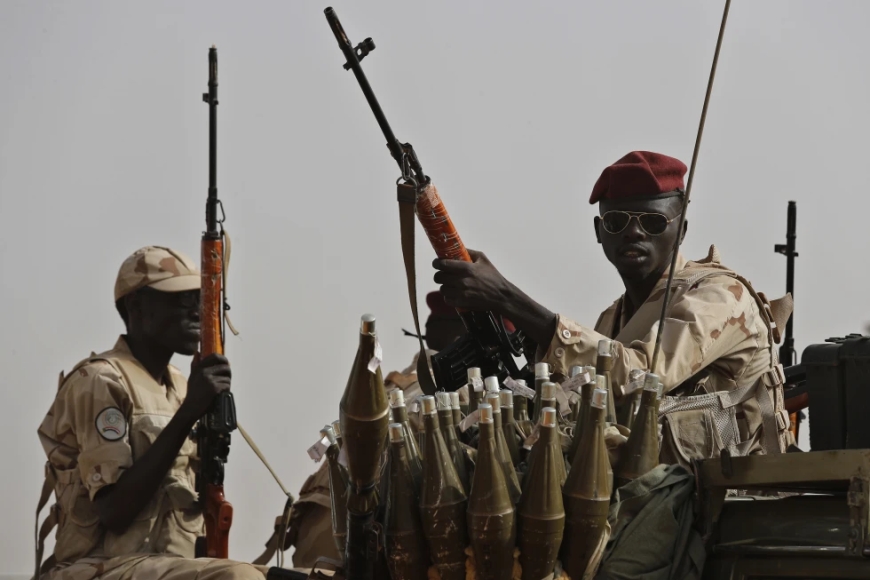Paramilitary Forces Open New Front in Sudan's Protracted Conflict
Fierce clashes have erupted between Sudan's military and the notorious Rapid Support Forces (RSF) in the central province of Sennar, escalating a 14-month conflict that has brought the African nation to the brink of famine.

The RSF launched an offensive earlier this week, attacking the village of Jebal Moya before advancing on Singa, the provincial capital. Residents and a local rights group reported that RSF fighters, armed and mounted on pick-up trucks, stormed Singa, looting homes, shops, and seizing control of the city’s main hospital.The paramilitary group claimed on Saturday to have captured the military's 17th Infantry Division Headquarters in Singa. Local media corroborated that RSF forces breached the military’s defenses. However, Brig. Nabil Abdalla, a spokesperson for the Sudanese armed forces, countered that the military had regained control of the facility, with fighting still ongoing Sunday morning. Independent verification of these claims was not immediately possible.
The United Nations' International Organization for Migration reported that at least 327 households have fled Jebal Moya and Singa for safer areas, describing the situation as "tense and unpredictable." Residents detailed extensive looting by RSF fighters, who reportedly took private vehicles, mobile phones, jewelry, and other valuables.
“They did like what they did in [the capital] Khartoum and other cities,” said Abdel-Rahman al-Taj, a Singa resident who fled to Blue Nile province. “Many people were killed, wounded, or detained.”
The Sennar Observatory for Human Rights stated that the RSF had occupied Singa Educational Hospital, detaining patients and medical staff as human shields. A physician at the hospital described the conditions as "extremely dangerous," with RSF fighters swarming the facility.
Historic Context and Ongoing Conflict
Sudan has been mired in conflict since April 2023, when long-standing tensions between the military and the RSF erupted into open warfare in Khartoum and other regions. The RSF, led by Gen. Mohammed Hamdan Dagalo, has been accused of gross human rights violations, including using starvation as a weapon, amid mounting warnings of imminent famine.
The conflict has parallels with the Darfur genocide of the early 2000s, where government forces and allied militias committed widespread atrocities. In the current conflict, Darfur has again seen severe violence, with the RSF besieging al-Fasher, the military’s last stronghold in the region.
Casualties and Displacement
The United Nations reports that the conflict has killed more than 14,000 people and wounded 33,000. However, rights activists believe the toll could be significantly higher. The violence has created the world’s largest displacement crisis, forcing over 11 million people to flee their homes. International experts have warned that 755,000 people could face famine in the coming months, with 8.5 million experiencing extreme food shortages.
The conflict has also been marked by rampant sexual violence and other atrocities, particularly in Darfur. Rights groups have documented numerous instances of war crimes and crimes against humanity committed by both the military and the RSF.
Looking Ahead
The international community continues to watch the situation in Sudan with grave concern. The ICJ's involvement and the attention of various human rights organizations highlight the severity of the crisis. As fighting spreads to new regions like Sennar, the humanitarian needs and calls for a resolution become even more urgent.
The ongoing conflict in Sudan serves as a stark reminder of the need for international intervention and robust mechanisms to protect human rights and prevent atrocities. With the nation on the verge of famine, the global response will be critical in addressing both immediate humanitarian needs and long-term stability in the region.













































